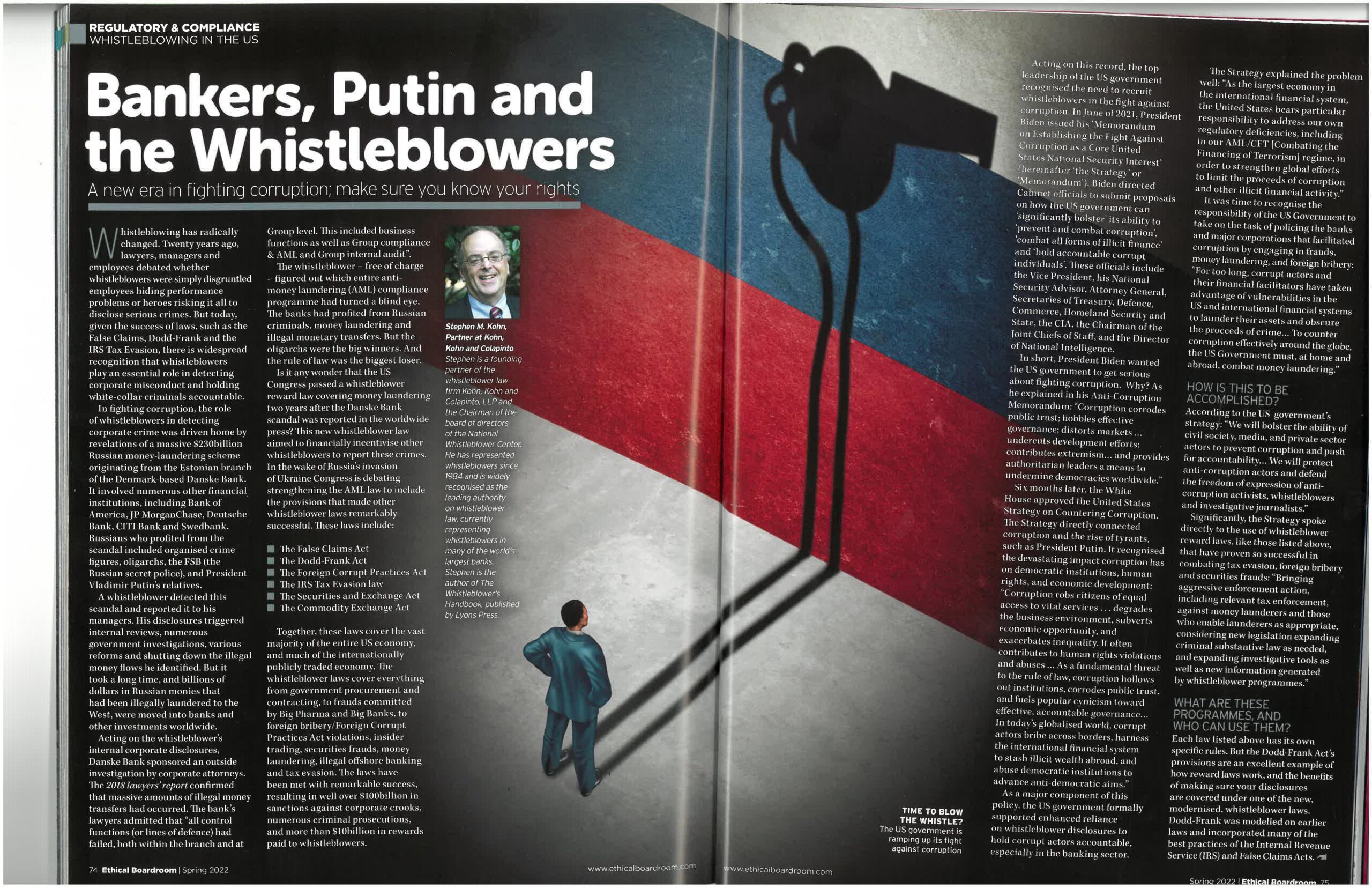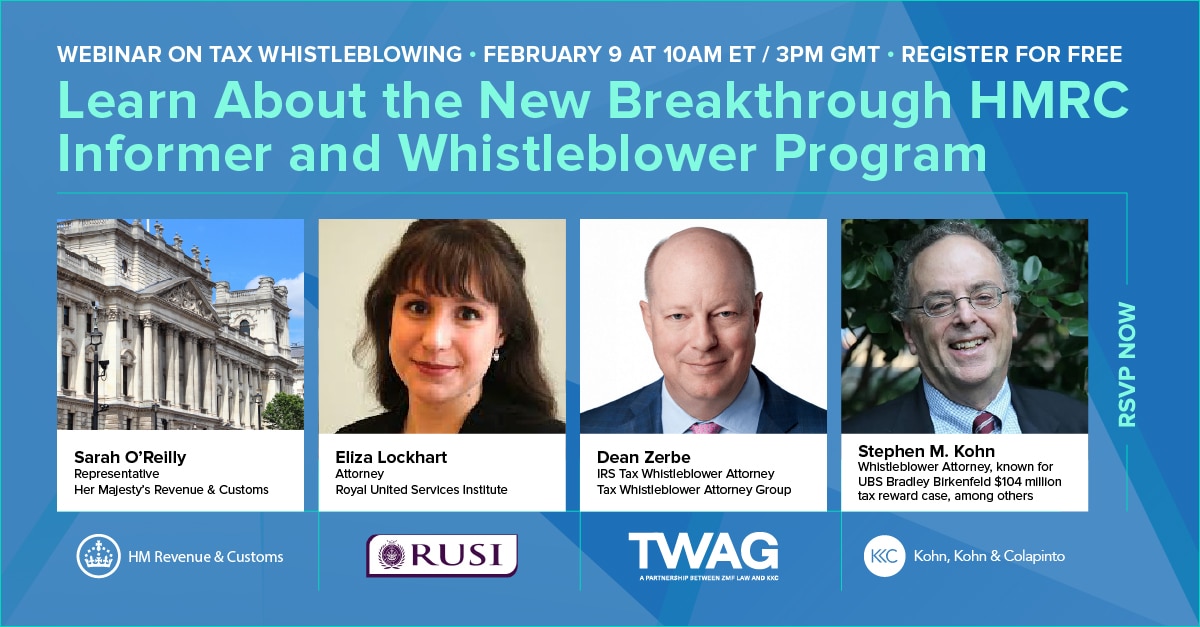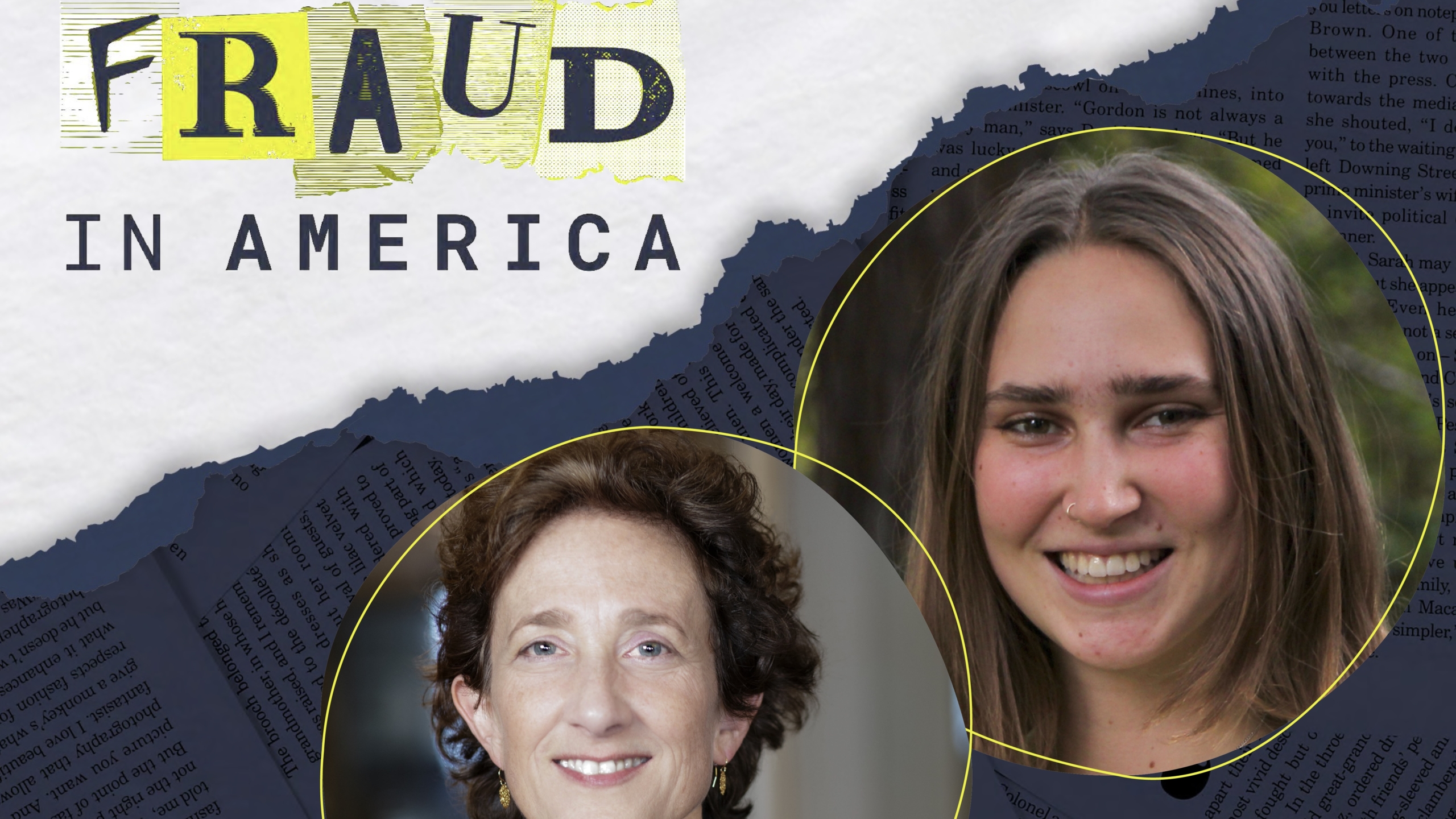Ethical Boardroom Magazine Features Article Centering Whistleblowing in Fight Against Corruption

The latest issue of Ethical Boardroom, a magazine focusing on global corporate governance issues, features a piece written by Kohn, Kohn & Colapinto (KKC) founding partner Stephen M. Kohn. Kohn’s article, entitled “Bankers, Putin, and the Whistleblowers,” provides an overview of U.S. corporate whistleblowing laws and the role they play in the U.S. strategy to combat corruption.
Kohn begins by highlighting the Danske Bank whistleblower Howard Wilkinson, a KKC client. Wilkinson is a former Danske Bank employee who blew the whistle on a $230 billion Russian money-laundering scheme centered in an Estonian branch of Danske Bank. The scheme profited Russian oligarchs, relatives of Vladimir Putin, the FSB (the Russian secret police), and individuals involved in organized crime in Russia.
According to Kohn, Wilkinson “figured out that to which the entire anti-money laundering (AML) compliance programme had turned a blind eye. The banks had profited from Russian criminals, money laundering, and illegal monetary transfers. But the Oligarchs were the big winners. The rule of law was the biggest loser.”
Kohn highlights Wilkinson in order to show how effective corporate whistleblowing is in exposing corruption across the globe. He notes that “the U.S. Congress passed a whistleblower reward law covering money laundering two years after the Danske Bank scandal was reported in the worldwide press.” According to Kohn, the AML whistleblower law joined the growing list of other whistleblower reward laws, all of which have proved remarkably successful. These include the False Claims Act, the Dodd-Frank Act, the Foreign Corrupt Practices Act and the IRS whistleblower law.
Kohn explains that due to the success of these whistleblower reward laws, U.S. officials “recognized the need to recruit whistleblowers in the fight against corruption.” In December 2021, President Biden issued the United States Strategy on Countering Corruption. According to Kohn, “as a major component of this policy, the U.S. government formally supported enhanced reliance on whistleblower disclosures to hold corrupt actors accountable, especially in the banking sector,”
Having explained the central role whistleblowing is set to play in efforts to combat corruption, Kohn next shifts to outlining the different U.S. whistleblower programs and who can use them. He outlines the reward provisions and confidentiality protections offered by the programs and highlights the fact that they are open to non-U.S. residents and citizens.
“Whistleblowing has radically changed,” concludes Kohn. “Make sure you know how the new laws work, and how they are now part of the U.S. strategy to combat corruption.”
Latest News & Insights
January 27, 2026





